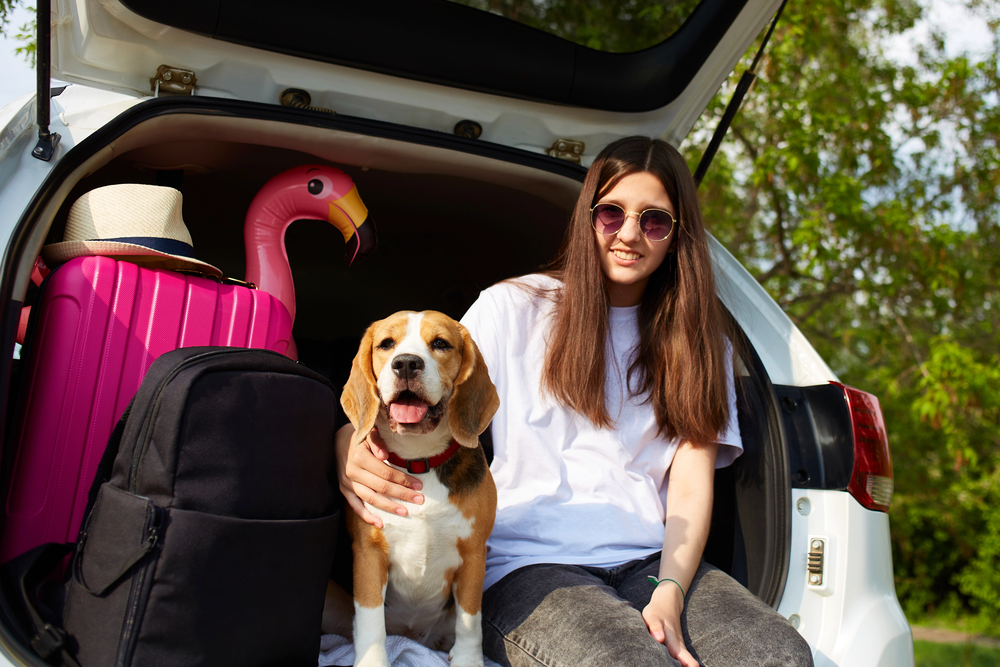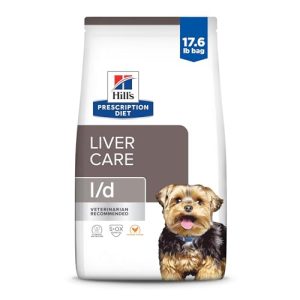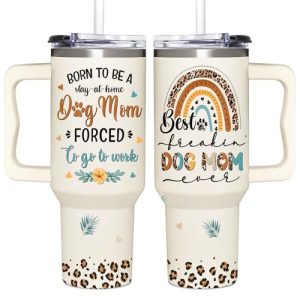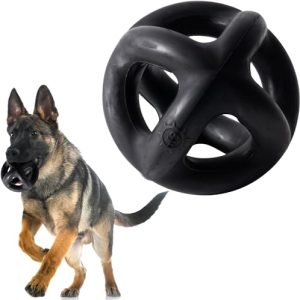Planning to travel with your dog? Before you pack your bags and leash, there are important rules and requirements you need to know.
Missing even one detail can turn your trip into a stressful experience for both you and your furry friend. You’ll discover everything you must prepare to ensure smooth and safe travel with your dog. Keep reading, because knowing these key requirements will make your journey worry-free and enjoyable.
Pet Identification
When traveling with a dog, proper identification is essential. It helps ensure your pet’s safety and quick return if lost.
Pet identification includes microchips, tags, and registration. Each plays a key role in meeting travel rules.
Microchips And Tags
Microchips are small devices implanted under your dog’s skin. They store a unique ID number linked to your contact details.
- Microchips must be ISO-compliant for international travel.
- Pet tags should include your phone number and your dog’s name.
- Tags can be attached to collars or harnesses for easy visibility.
- Check tags regularly to ensure information is clear and up to date.
Registration Requirements
Many countries require dogs to be registered before entry. Registration links your pet’s ID to official records.
| Country | Registration Needed | Notes |
| United States | Yes | State-specific rules apply |
| United Kingdom | Yes | Microchip registration mandatory |
| Australia | Yes | Proof of registration on arrival |
| Canada | Varies | Check provincial regulations |

Credit: www.explorewithlora.com
Health Documentation
Traveling with your dog needs proper health documents. These papers prove your dog is safe and healthy.
Airlines and countries may require different documents. Always check rules before you travel.
Vaccination Records
Vaccination records show your dog’s shots are up to date. They protect your dog and others from diseases.
Common vaccines include rabies, distemper, and parvovirus. Some places need proof of rabies vaccination.
- Include the date of each vaccine
- Show the veterinarian’s signature
- Keep records in English or translated
Health Certificates
A health certificate is a note from a vet. It says your dog is healthy to travel.
Many countries want a certificate dated within 10 days before travel. It must be signed by a licensed vet.
- Includes dog’s ID and breed
- States no signs of illness
- Lists any treatments or medications
Parasite Treatments
Parasite treatments protect your dog from worms and ticks. Some countries require proof of these treatments.
Check if you need treatment against tapeworms or ticks. The treatment date must usually be close to travel.
- Keep records of all parasite treatments
- Include treatment dates and medication names
- Follow destination country rules carefully
Travel Carrier Guidelines
Traveling with your dog needs proper planning. A good carrier makes the trip safe and comfortable. Knowing the right size and airline rules helps avoid problems.
This guide covers key points on carrier size, comfort, and airline regulations for pets.
Carrier Size And Comfort
Choose a carrier that fits your dog well. It should be large enough to let your dog stand, turn, and lie down easily. Soft sides add comfort but hard carriers protect better.
- Measure your dog’s length and height before buying.
- Pick a carrier with good ventilation on multiple sides.
- Include a soft mat or blanket inside for comfort.
- Look for carriers with secure, easy-to-use closures.
- Check if the carrier is leak-proof in case of accidents.
Airline Carrier Rules
| Airline | Max Carrier Size | Weight Limit | Additional Notes |
| Airline A | 18 x 11 x 11 inches | 15 lbs including pet | Must fit under the seat |
| Airline B | 17 x 12 x 10 inches | 20 lbs including pet | Soft-sided carriers only |
| Airline C | 19 x 13 x 10.5 inches | 18 lbs including pet | Carrier must have ventilation |
Always check the specific airline’s pet policy before booking. Some airlines require health certificates or advance notice.

Credit: www.flywithmypet.com
Transportation Options
Traveling with a dog needs careful planning about transportation. You must know rules and best ways to move your pet safely.
This guide covers flying, road trips, and public transport rules for dogs. Each mode has unique needs.
Flying With Dogs
Flying with a dog requires checking airline policies. Many airlines ask for a pet carrier that fits under the seat.
- Book flights in advance and inform the airline about your dog.
- Use an airline-approved pet carrier with good ventilation.
- Carry your dog’s health certificate and vaccination records.
- Keep your dog calm by familiarizing them with the carrier before the trip.
- Feed your dog a light meal a few hours before the flight.
Road Trips
Road trips give more freedom for dogs. You can stop often for breaks and exercise.
| Tip | Details |
| Use a seatbelt harness | Keep your dog safe inside the car |
| Bring water and food | Offer regularly during stops |
| Plan for bathroom breaks | Stop every two to three hours |
| Never leave dog alone | Cars can get too hot or cold quickly |
| Keep windows slightly open | Ensure fresh air but no escape |
Public Transport Rules
Public transport rules vary by city and type. Some allow small dogs only in carriers.
Common rules include:
- Dogs must be on a leash or inside a carrier.
- Some services require a ticket for the dog.
- Service animals usually travel free and with no restrictions.
- Check local transit websites for exact rules.
Pet Behavior Preparation
Traveling with a dog needs careful behavior preparation. A calm dog makes the trip easier.
Training your dog for travel helps reduce stress. Preparing your pet also keeps everyone safe.
Training For Travel
Train your dog to stay calm in new places. Practice short trips before long journeys.
Teach your dog to accept a crate or seat belt. This keeps them secure during travel.
- Use a crate for safety and comfort
- Practice car rides with your dog often
- Reward calm behavior with treats
- Teach basic commands like “sit” and “stay”
Calming Techniques
Keep your dog calm with soothing actions. Use gentle petting and a soft voice to reassure them.
Try calming aids like pressure wraps or familiar toys. These help reduce anxiety during travel.
- Give your dog a favorite blanket or toy
- Use a snug pressure wrap or shirt
- Play soft music to relax your dog
- Take breaks to let your dog stretch

Credit: www.flywithmypet.com
Destination Rules
Traveling with a dog needs careful planning. Each place has its own rules for pets. Knowing these rules helps make your trip safe and smooth.
This guide covers important destination rules. It focuses on pet-friendly accommodations and local regulations you must follow.
Pet-friendly Accommodations
Many hotels and rentals accept dogs. Some places have limits on size or breed. Extra fees or deposits might apply. Always check before booking.
- Confirm if pets are allowed in advance
- Ask about size or breed restrictions
- Check if there is a pet fee or deposit
- Find out about pet areas and rules on-site
Local Regulations
Local laws can affect your dog’s travel. These include leash rules, vaccination needs, and restricted areas. Follow these rules to avoid fines or trouble.
| Regulation | Description | Action Required |
| Leash Laws | Dogs must be on a leash in public places. | Always carry a leash and use it outdoors. |
| Vaccinations | Proof of rabies and other shots may be needed. | Bring vaccination records during travel. |
| Restricted Areas | Some parks or beaches may ban dogs. | Check local maps and signs before entering. |
Packing Essentials
Traveling with your dog is fun, but you need to pack right. Make sure you have all the essentials ready to go.
These items will ensure your furry friend’s comfort and safety during the journey.
Food And Water Supplies
Keep your dog well-fed and hydrated while traveling. Pack enough food and water for the entire trip.
- Pack portable food and water bowls.
- Bring enough dog food for each day of the trip.
- Carry extra water bottles to keep your dog hydrated.
- Include some of your dog’s favorite treats.
Comfort Items
Comfort items help your dog feel at home, even while traveling. Familiar items reduce stress and anxiety.
| Item | Purpose |
| Favorite Blanket | Provides warmth and security |
| Toys | Keep your dog entertained |
| Bed | Ensures a cozy rest spot |
Emergency Kit
An emergency kit is vital for unexpected situations. Be prepared to handle minor injuries or health issues.
- First aid supplies
- Medications
- Vet contact information
- Copies of medical records
Frequently Asked Questions
What Documents Are Needed To Travel With A Dog?
You need your dog’s health certificate, vaccination records, and identification tags. Some places require microchipping. Check airline or country-specific rules before travel.
How To Prepare A Dog For Air Travel?
Use an airline-approved crate, label it clearly, and ensure your dog is comfortable inside. Acclimate your dog to the crate weeks before flying.
Are There Breed Or Size Restrictions For Dog Travel?
Yes, airlines often restrict certain breeds and sizes for safety reasons. Confirm policies with the airline before booking your flight.
What Vaccinations Are Required For Traveling Dogs?
Rabies vaccination is usually mandatory. Additional vaccines depend on the destination’s health regulations. Always carry updated vaccination records.
Conclusion
Traveling with a dog requires careful planning and preparation. Know the rules for your destination. Have all necessary documents ready, like vaccination records and ID tags. Choose pet-friendly transport and accommodations. Keep your dog’s comfort and safety in mind. A little effort helps avoid problems during your trip.
Enjoy your journey with your furry friend by staying organized. Safe travels and happy adventures await you both.

Emily Barker is the founder of ChillDogLife.com, a space dedicated to helping pup parents discover the best dog products, lifestyle tips, and cozy ideas for happier homes.
A lifelong dog lover, Emily combines her passion for pets with a knack for research to share trusted recommendations on everything from toys and furniture to health and everyday care.
Her goal is simple: to make life easier, stylish, and more joyful for dogs and the people who love them.







